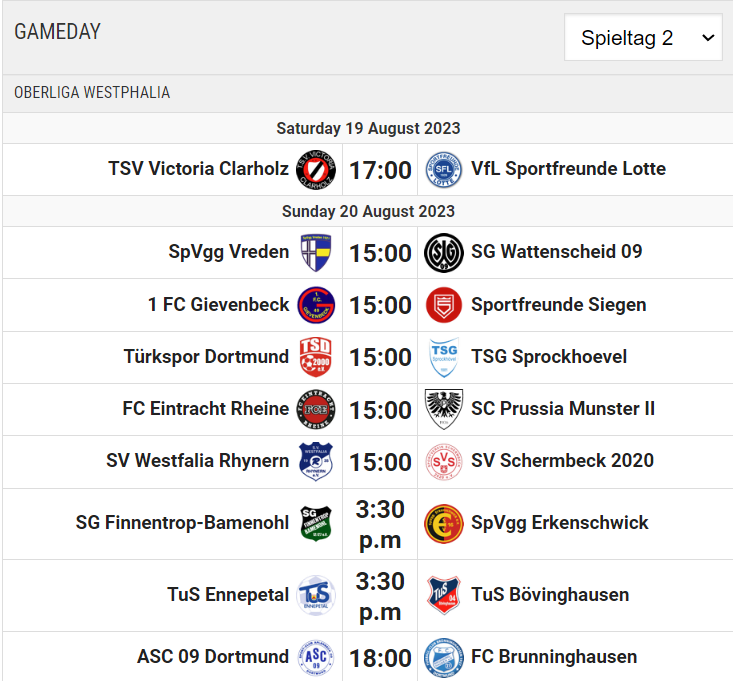Sportfreunde Siegen earned a point against Türkspor Dortmund in front of almost 1000 spectators. Now the first away trip to 1. FC Gievenbeck is on the agenda.
The Oberliga Westfalen opener between Sportfreunde Siegen and Türkspor Dortmund ended in a 1-1 (1-0) draw.
After the game, Sportfreunde coach Patrick Helmes was satisfied with his team’s performance despite initial difficulties. He particularly emphasised the mentality and game dynamics. At the same time, the former national player discovered potential for improvement in dealing with ball losses and in efficiency in front of the opponent’s goal.
Helmes was impressed by the role of the spectators as emotional supporters: The almost 1,000 spectators present had a positive influence on the team and the game, as Helmes described. The 39-year-old hopes for this inspiring atmosphere in the upcoming matches as well.
With regard to the upcoming away match against 1. FC Gievenbeck on Sunday (20 August, 3 p.m.), Sportfreunde Siegen are relying on their tried and tested preparation strategy, which also includes a thorough analysis of the opponent. Helmes explains: “For us, our own bar is very high. Let’s see how far we will be. We are looking forward to it and will try to take something countable back to the Siegerland. “
We try to be flexible and still keep our own DNA.
Patrick Helmes
It’s not easy, every opponent offers different challenges. “In the Oberliga, we encounter different styles of play, including teams that rely on short or long balls or counter-attacking strategies,” Helmes explains. However, it is important to be able to compete against any approach. “We try to be flexible and still keep our own DNA.”
Especially with a view to the past season, in which Sportfreunde only narrowly escaped relegation, the coach emphasises the importance of realistic expectations in the Siegerland. The goal for the coming season is to deliver a stable performance.
The head coach describes his squad as qualitatively strong, and he sees the work of the sporting management and the board as a success. And yet, “hard work” is still necessary to achieve joint success.

